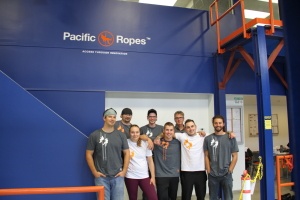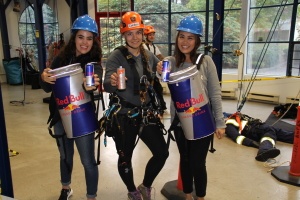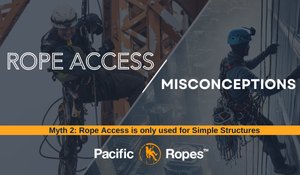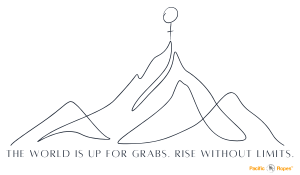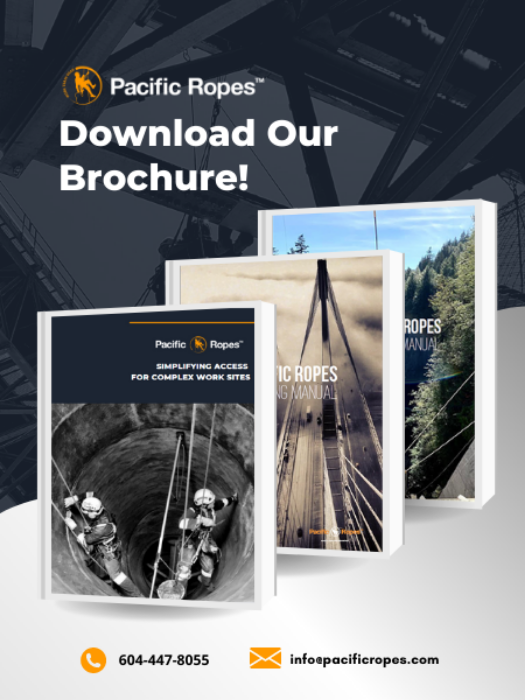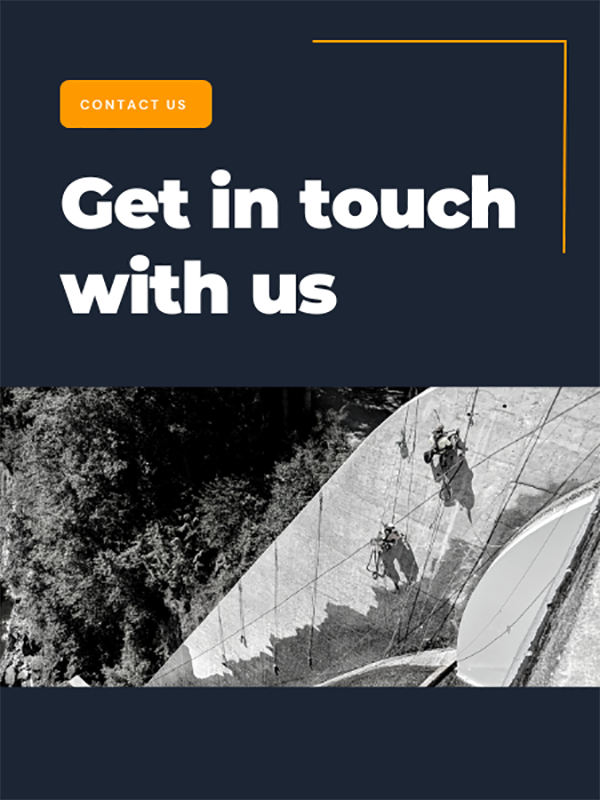Change is not easy. You spend your life working your trade on scaffold and now someone wants you to accomplish your work on ropes. Ropes?? Is that safe? How does that work? Is rope access right for my career?
Now you're in a dilemma. Do you trust the foundations you have come to know and leave the "new thing" to the next generation? Or, do you jump on the bandwagon? Will it help you excel or hinder you?
I wish I could predict the future. Like your dilemma, I'm always pondering whether rope access is the right investment for the future. Operating and owning this rope access business involves a certain amount of risk and uncertainty. Will this be the way of the future or is it just a fad?
I've lived a lot of my life in the safe zone but something about this tells me to go for it and see what's in store. What I do know is rope access saves money and who doesn't like that? Some industries may be hesitant to dive deep into using it while others have adopted it as their second child (the first child is still scaffold). I don't know where each industry will go or where your industry is geared towards. But, I believe that rope access can be a benefit. So, I'm going for it!
While I leave you to ponder as to which way you will go, here is a little conversation we had with one of our students Candace. Candace is a young, dynamic Vancouver Island girl who came to us as a welder with big goals; mainly, her need to be Rope Access certified to create more opportunities for her work globally in more diverse workspaces. Enjoy!
Candace's 12 questions about Rope Access
How did you get your start in Rope Access and why?
When I originally chose to become a welder, things were booming in Alberta, and I was about to get on a plane to South East Asia for 6 months. I already knew I had a passion for traveling and I knew that welding was an easy job to work for a short stint, travel, then come back for more work. Then I found out about Rope Access and it seemed like the perfect way to take my trade around the world with me while working on some incredible worksites!
What is the most common question your friends ask you when they want to know more about what you do?
Most people where I live have never heard of Rope Access, we don’t have much in the way of buildings over 2 stories tall, or large great bridges. So, when I mention Rope Access, I mostly get blank stares until I explain more detail about it. My friends get really excited for me and then as is usually the case because it involves rope and works at height, I am always asked about how dangerous it is. To which I answer, 'actually it is the safest way to carry out any work at height globally, with a low-to-no incident rate.
If you had to use one word to describe your Rope Access training with Pacific Ropes for your L1 dual cert, what would it be?
Awesome!
Is there anything characteristic of being a person in your field who is looking to take a trade to height—I mean, heights are not for everyone!
Heights really aren’t for everyone and I think that if you’re going to take welding
to the ropes, you need to be serious about it. There are a lot of precautions to take
if you want to take care of your gear and yourself. And there doesn’t seem to be a
ton of onshore RA welding work, so you need to be willing to work hard to get where the work is.
What's your favourite part of being on a job site?
I like the first few weeks on a job site when you get to meet everyone and
everything is new and exciting, sometimes you get to try new jobs that you’ve
never done before.
Biggest piece of advice for someone thinking about getting their Level 1 IRATA or SPRAT?
Go for it! Just make sure you know what you’re getting into, you will be hanging on ropes sometimes hundreds of feet in the air, you need a healthy relationship with
heights, and you need to be able to focus.
Where do you see the future of your trade-in Rope Access in Canada?
I’m not sure how much welding at heights there will be, but I am happy to do some regular welding, and then some non-related rope work to give my lungs a break.
What is the greatest challenge you faced during your training? How were you able
to overcome it?
Oh man, the long rebelay.. That takes a lot of focus and a lot of strength.
Do you face any particular challenges in your current job that Rope Access is going to help you overcome? Or, what kinds of new opportunities will having your L1
IRATA/SPRAT open up for you?
Having L1 opens up offshore work for me, which I am super excited to work
towards, and it also gives me a basic knowledge of how to work safely when I am
way up on machinery.
What is the biggest thing you want to tell people about Rope Access training?
I like to tell people about all the exciting opportunities it opens up, you can pursue wind energy, offshore, civil infrastructure, or oil and gas, and even if you have no
prior trades or experience, you can clean windows or do building maintenance.
What continues to inspire your life as someone who has given your professional life to Rope Access?
I am looking forward to learning how to join my passion for travel with my new
found passion for Rope Access! I also can’t wait to get even more tickets under
my belt, maybe NDT or wind energy.
Being on several work sites, you must have had some laughs when taking a break,
so, what’s your favourite clean joke?
I’m not sure I have any clean ones… Things get pretty haywire with welders!
If you're interested in our rope access courses, check out our training page for more information! 
